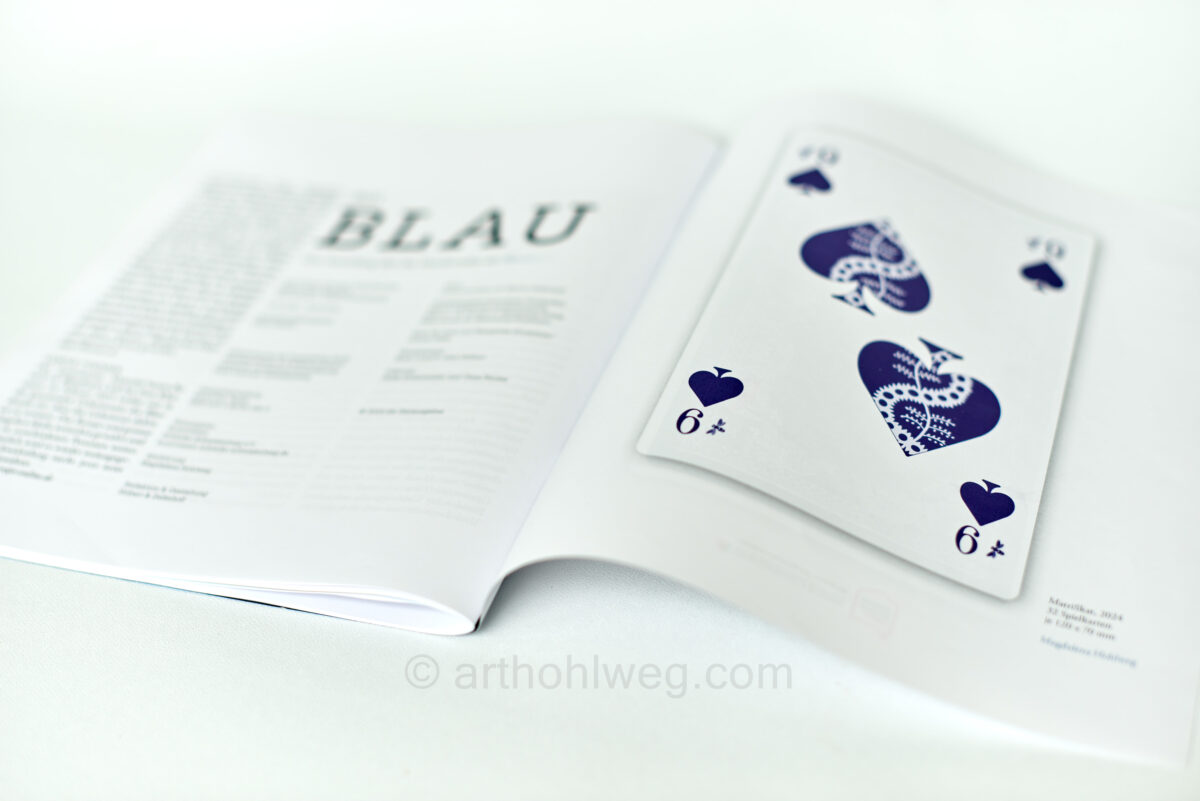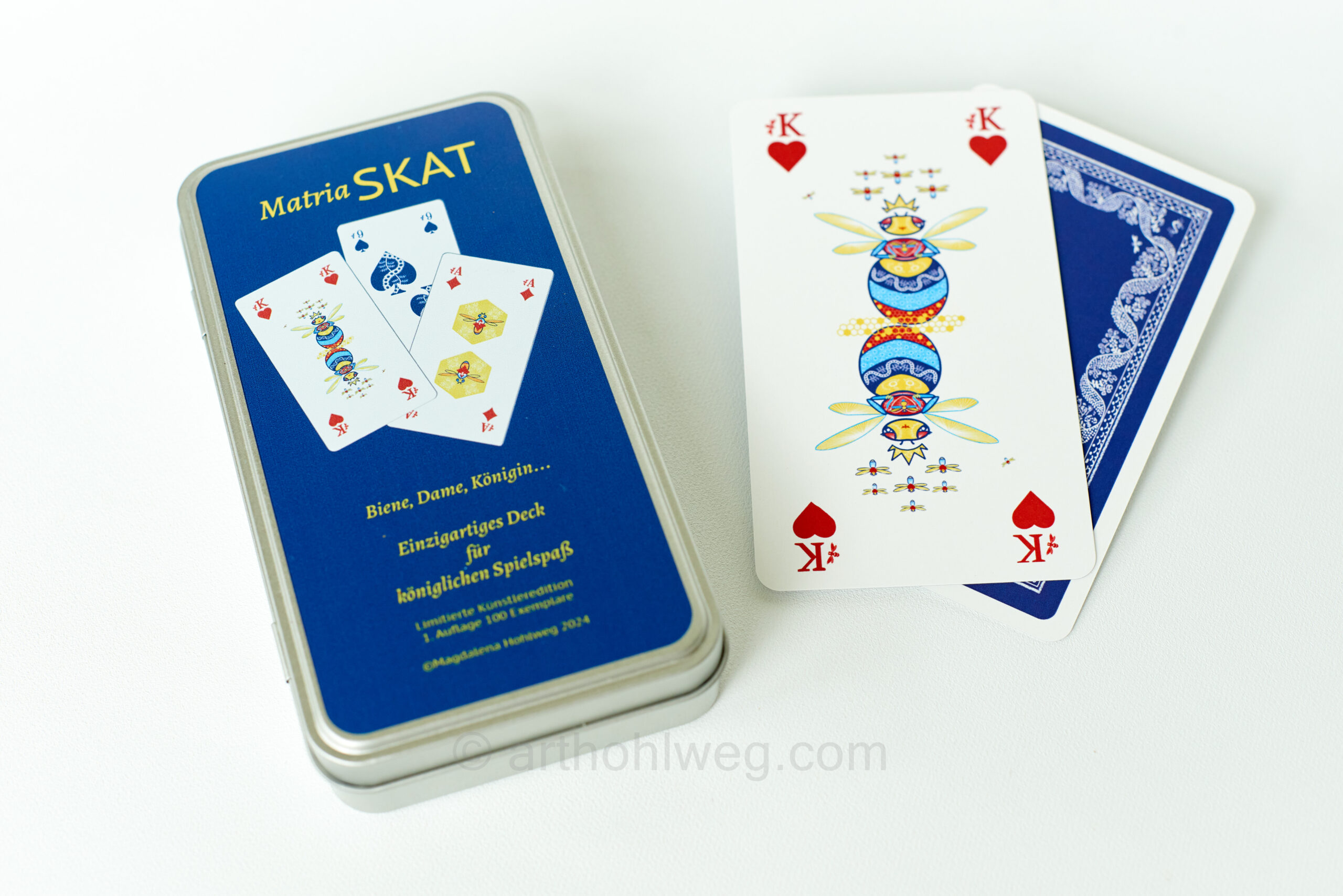It began with the traditional Schwalenberg blueprint and the exhibition withBLAU
– This became my card deck – MATRIA SKAT
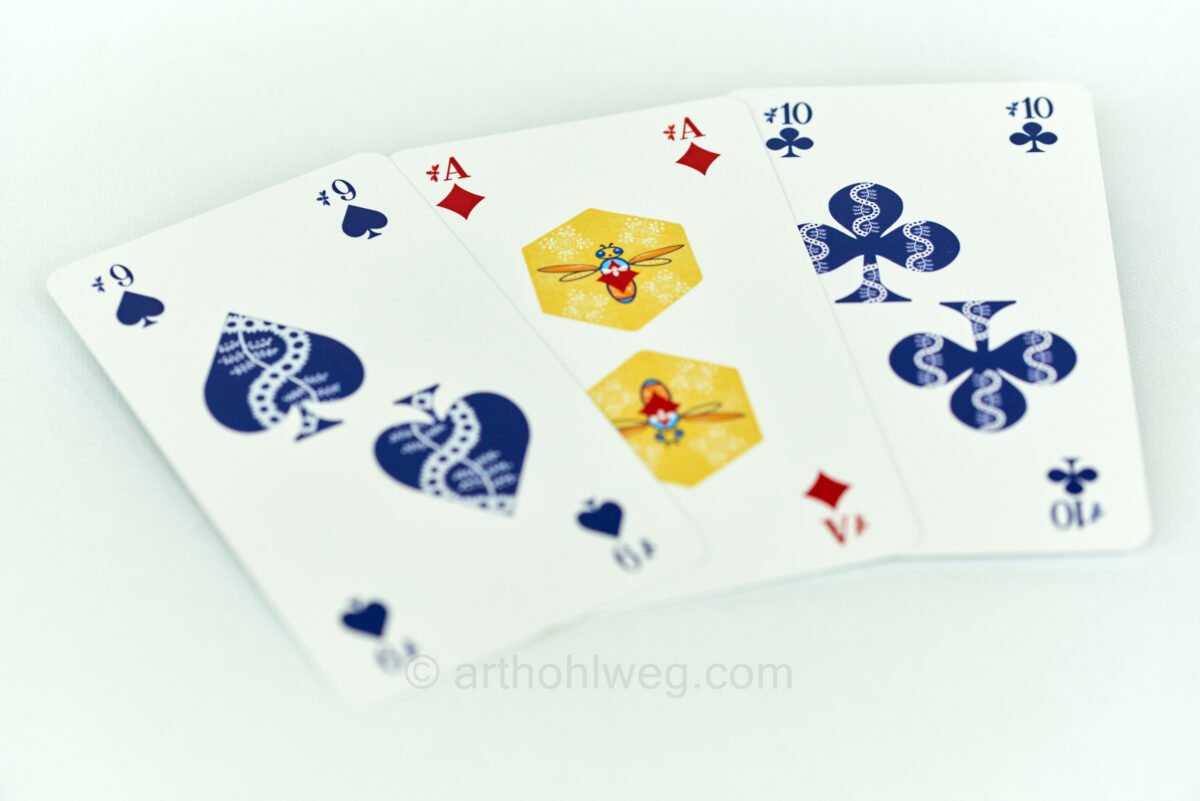
Expand overview here
This is about the creation process of my card deck with bees, an art project called “MATRIA SKAT”. This skat deck has its origins in my involvement with “Schwalenberg blue printing”. So first a few words about the tradition and development of this craft. My involvement brought me new impulses and ideas. Initially, a single playing card was created, from which a whole deck of cards developed – with a mission that is close to my heart: It’s about traditions in transition, about nature, about bees and about us living together as equals.
If you would like to find out more about the mitBLAU exhibition and the other participating artists, you can follow this link
What is blueprinting?
1st development: From the middle of the 19th century to the middle of the 20th century, the Lippe region was home to this fabric printing process. White patterns were created on blue-dyed fabrics, e.g. for tablecloths, curtains and clothing. The motifs were characterized by a regionality that can hardly be found today. Naive natural motifs were applied to fabrics with the help of carved wooden models. These wooden stamps were coated with the so-called “Papp” to impregnate the fabric. With the recess technique, the cloth only dyed in the areas that were not treated. The “Papp”, a viscous, light-colored paste, was produced by the master craftsmen according to secret recipes. At that time, the production process was already contaminated with so many chemicals that it can no longer be used in private households without appropriate filter systems.
2. the blue: The blue color was originally made with the local safflower and with the help of a lot of human urine. I’d rather not imagine the smell on the days of “making blue”. Incidentally, to ensure that the urine could flow freely, the craftsmen liked to drink beer in preparation. The day after, some of the tradesmen were sure to suffer after-effects – which is why we still use the term “making blue” today.
3rd progress: In the 20th century, imported indigo increasingly prevailed over domestic safflower. On the one hand, indigo simplified production, but on the other, its easier availability damaged the exclusivity of domestic craftsmanship.
So much for my research into the artistic approach to the subject. Now I asked myself the question:
How close do I have to stay to tradition?
The more I studied blueprinting, the more clearly I saw the rigid hierarchical structure of the craft. And of course, the title of master in the blueprinting trade was reserved for men alone. Of course, there were no female apprentices either.
Tradition and idyll – that was blueprinting
Not every tradition is worth preserving – turning the old structures upside down was therefore my aim in my artistic exploration of the craft. As mentioned above, the production of blueprinting was also quite an environmental burden – on the dyeing days, the surrounding streams were blue and polluted with chemicals – not to mention the stench…
The first playing card is created
The idea for the playing card was quickly born. So I was able to turn everything on its head very directly – I adapted the traditional costumes to the look of bark beetles. Now the two beetle-like creatures stand opposite tradition. Everything is changing. The red and white framing is due to the fluttering tape that was omnipresent during the Corona period – exclusionary, confining, garish.
Blueprint remains Blueprint remains Blueprint remains Blueprint….?
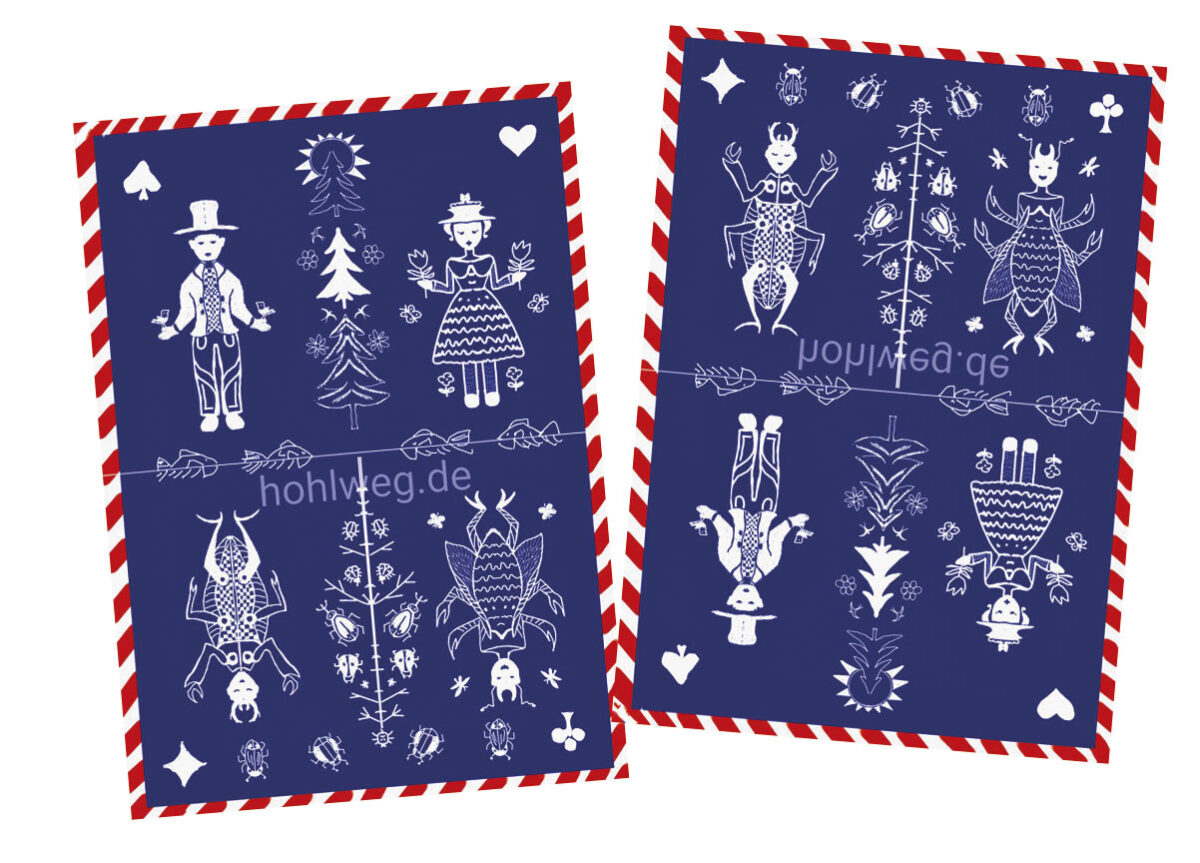
But does the work for blue printing necessarily have to be blue?
However, the more intensively I dealt with the dystopian figures and insects, the more their appearances dampened my mood. I was looking for other motifs and wanted to pursue the idea of the playing cards further. After several drafts, the blue and white contrast became too cold for me. And a classic skat deck needs at least two colors to make it easier to find your way around the game, right? After all, I wanted to design a playable deck of cards. That led to the next consideration: I need more color!
…and another outdated tradition:
I had already decided that I would use several colors for a playable deck of cards. However, on closer inspection of the many traditional card decks, I came across the next restriction. Because: Basically, the king leads his court. Oh folks. It’s time for something new.
With several colors, I would be able to create a deck of cards with a positive aura. I would change the ranking with the king. But would bark beetles really be suitable ambassadors for fresh perspectives? I personally have nothing against bark beetles and they are certainly not the cause of forest dieback…
The good news: bee, queen, queen
…but much more optimistically than bizarre crawling beetles, the dear little bees would be able to unfold their “positive vibrations”. Well, that’s how the development took its course. An entire bee colony was created. The drone, i.e. the male bee, is the jack. The honeycomb quickly emerged as the ace in the pack. The drawings were created on the computer. But don’t think that simplifies things. On the contrary – there are so many design possibilities in the smallest details – and I made ample use of them. Each bee has one of the traditional patterns. Each color, each number presents its own motif of the traditional Schwalenberg blueprint – old tradition in a new guise. That was my aim. Here you can see how I achieved it.
Matria Skat
You can get the whole deck of cards here. However, it is only available in a very small edition
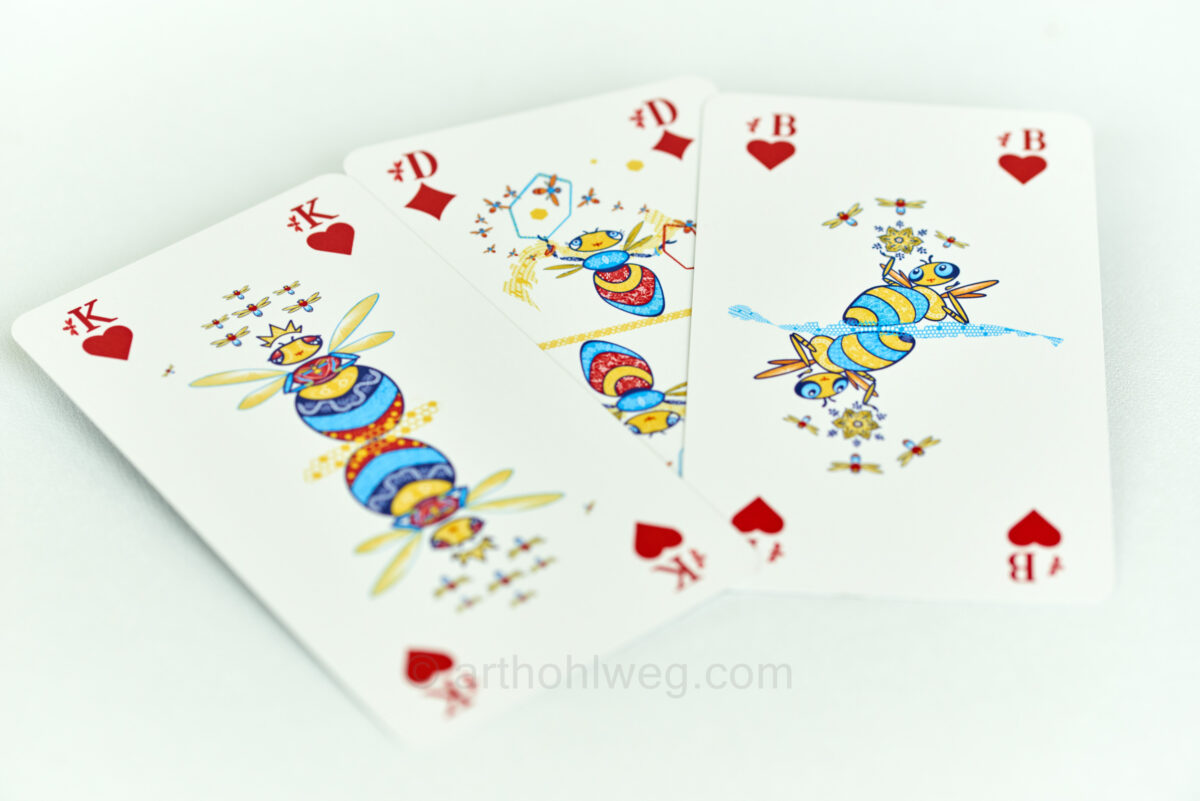
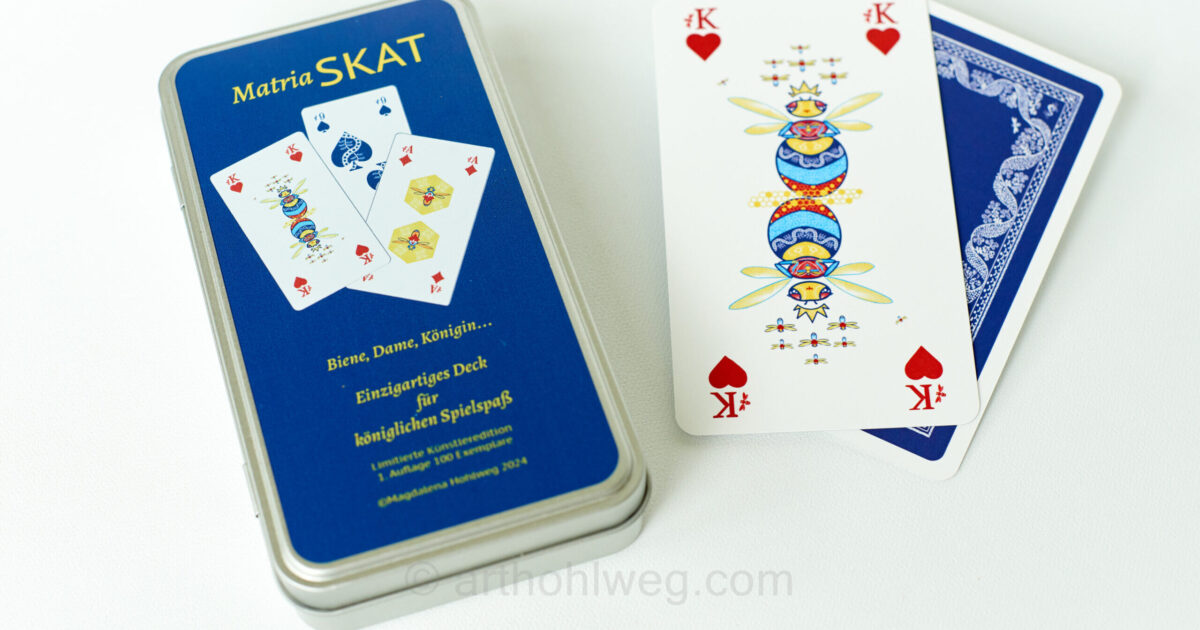
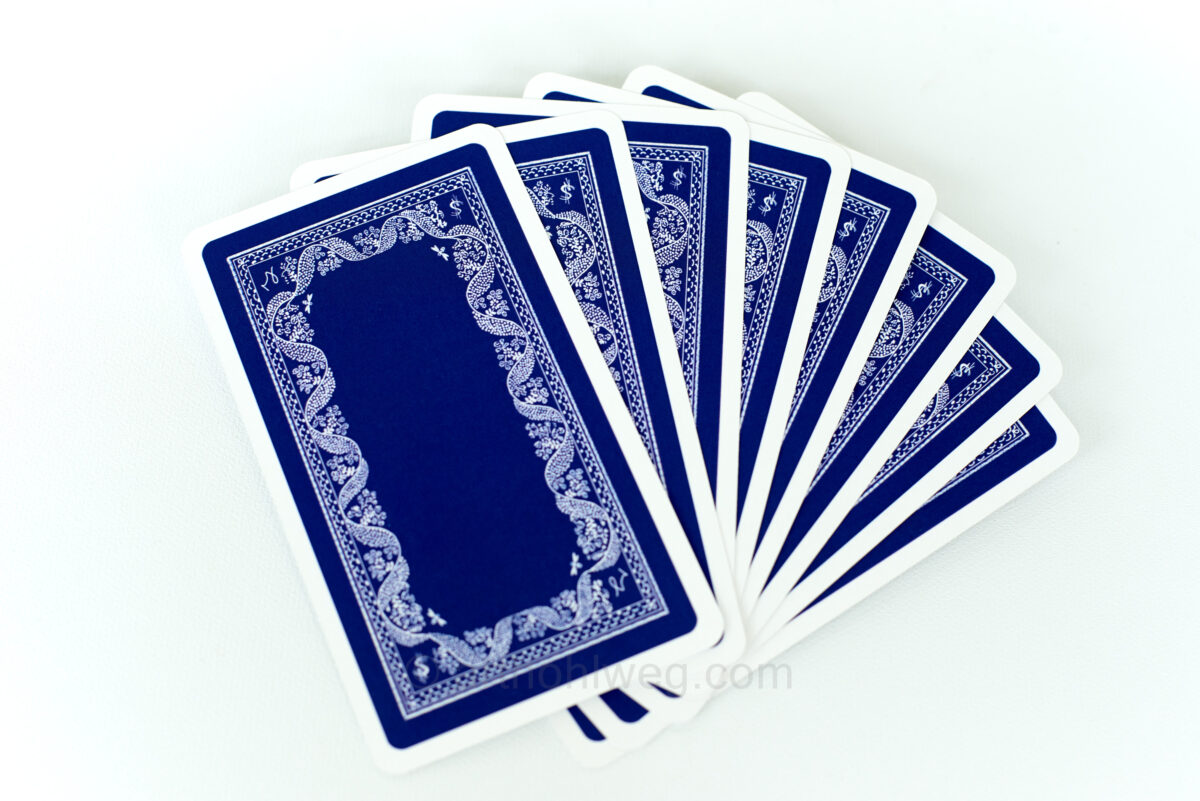
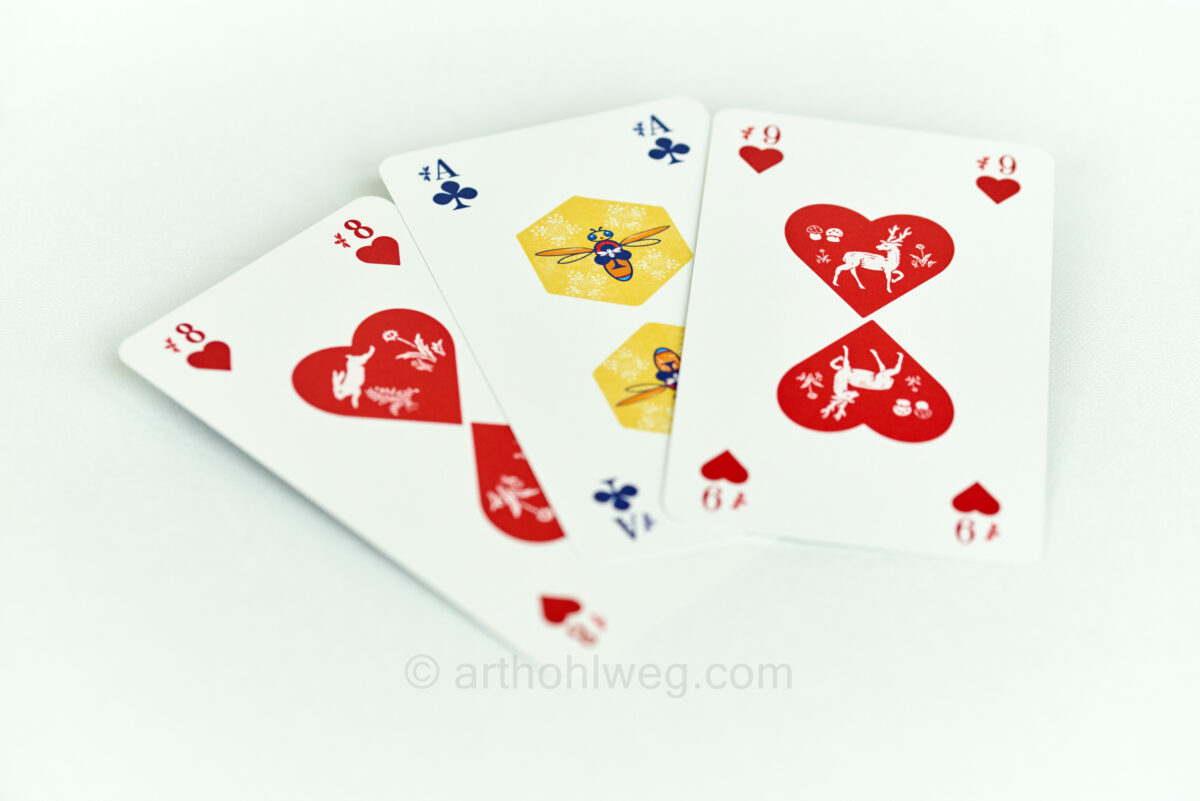
Matria Skat was part of the exhibition mitBLAU in Schwalenberg at the beginning of 2024. The exhibition catalog is available directly from the Kunstverein Schwalenberg or from Krautin Verlag
